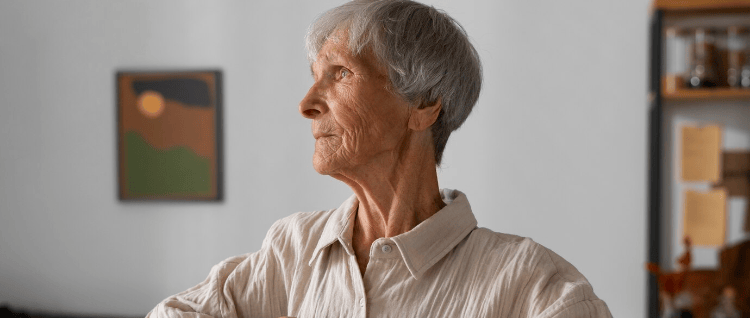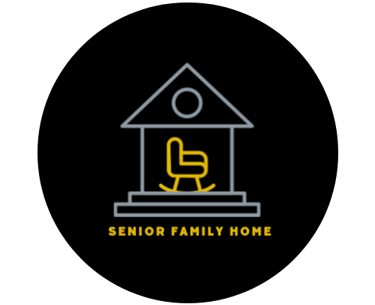Understanding Lewy Body Dementia: Symptoms, Causes, and Treatment


Lewy Body Dementia (LBD) is a complex and progressive neurological disorder that sits at the intersection of Alzheimer’s and Parkinson’s diseases. It is the second most common form of dementia after Alzheimer’s and is characterized by its unique mix of symptoms that affect cognitive abilities, physical movement, sleep, and even mood. This complexity makes it challenging to diagnose and manage, yet understanding LBD is critical for providing the right care and support.
LBD is caused by abnormal deposits of a protein called alpha-synuclein, also known as Lewy bodies, which build up in areas of the brain that control various functions such as movement, cognition, and emotion. This protein accumulation interferes with brain cells' ability to function and communicate, leading to the symptoms associated with the disorder.
Recognizing the Symptoms of Lewy Body Dementia
LBD manifests through a range of cognitive, physical, and psychiatric symptoms, which can fluctuate and vary widely among individuals. The primary symptoms include:
Cognitive Impairments: Similar to Alzheimer’s disease, individuals with LBD often experience memory loss and cognitive decline. However, one of the unique features of LBD is cognitive fluctuations, where a person may have moments of clarity followed by episodes of confusion or disorientation. These fluctuations can make daily routines challenging and unpredictable.
Movement Symptoms: LBD shares several symptoms with Parkinson’s disease, such as muscle stiffness, tremors, slowness of movement (bradykinesia), and difficulties with coordination and balance. These motor symptoms often lead to an increased risk of falls and physical instability, making it crucial for individuals with LBD to have a safe, supportive environment.
Visual Hallucinations: Vivid, recurrent visual hallucinations are a hallmark feature of LBD. Individuals may see people, animals, or objects that aren’t actually present. Unlike other forms of dementia, these hallucinations are not fleeting but tend to be detailed and realistic, which can be distressing and confusing for both the person and their loved ones.
Sleep Disturbances: Many people with LBD experience REM sleep behavior disorder (RBD), in which they physically act out their dreams, sometimes violently. This can involve talking, kicking, or punching during sleep and can be dangerous for both the individual and their bed partner. Additionally, individuals with LBD may have excessive daytime sleepiness, as sleep patterns become increasingly disrupted.
Mood and Behavioral Changes: LBD can lead to mood swings, depression, anxiety, and even aggressive behavior. Additionally, some individuals may develop delusions, believing in things that are not real, or have paranoid thoughts.
Sensitivity to Medications: One of the most critical factors in managing LBD is understanding its unique sensitivity to medications, particularly antipsychotic drugs. Commonly used antipsychotic medications can trigger severe reactions in people with LBD, potentially worsening symptoms and even leading to life-threatening complications. This sensitivity highlights the importance of an accurate diagnosis and tailored treatment plan.
Causes of Lewy Body Dementia
The exact cause of Lewy Body Dementia remains unknown, but it is believed to result from a combination of genetic, environmental, and age-related factors. In some cases, genetic mutations may increase the risk of LBD, though these cases are rare. Environmental factors, such as exposure to certain toxins or chemicals, have also been considered potential risk factors. Additionally, age is a major risk factor, with most people diagnosed with LBD being over the age of 50.
How LBD Differs from Alzheimer’s and Parkinson’s Disease
LBD shares some overlapping symptoms with Alzheimer’s and Parkinson’s, which can make diagnosis challenging. However, there are distinct differences:
Cognitive Symptoms: Alzheimer’s disease is primarily associated with memory loss, while LBD involves a broader range of cognitive symptoms, including visual hallucinations and significant fluctuations in mental alertness. These fluctuations are often more pronounced in LBD than in Alzheimer’s.
Motor Symptoms: Parkinson’s disease typically involves motor symptoms like tremors and stiffness, which are also seen in LBD. However, in LBD, cognitive symptoms often appear simultaneously or before the motor symptoms, unlike Parkinson’s, where motor symptoms usually appear first.
Medication Sensitivity: One critical difference is the sensitivity to medications, especially antipsychotic drugs. While some medications are tolerated in Alzheimer’s or Parkinson’s, people with LBD often react poorly to these drugs, highlighting the need for an accurate diagnosis.
Importance of Early Diagnosis
Diagnosing Lewy Body Dementia can be challenging due to its symptom overlap with other neurological conditions. However, early diagnosis is essential for creating an effective treatment plan. LBD requires a specific approach to care that addresses its combination of motor, cognitive, and psychiatric symptoms. Recognizing the symptoms early allows healthcare providers to make informed treatment decisions, potentially improving the patient’s quality of life.
Treatment Options for Lewy Body Dementia
While there is no cure for LBD, several treatments can help manage symptoms and improve quality of life. Treatment is often multidisciplinary, involving a team of specialists who can address the various aspects of the disease. Common approaches include:
Medications:
Cholinesterase Inhibitors: These medications, often used in Alzheimer’s treatment, can help improve cognitive symptoms like memory and attention. They may also help reduce hallucinations and other psychiatric symptoms.
Dopamine-Enhancing Drugs: Some medications used in Parkinson’s, such as levodopa, can help alleviate motor symptoms like rigidity and tremors. However, these drugs need to be used cautiously, as they may exacerbate other symptoms.
Antipsychotic Medications: Due to the extreme sensitivity in LBD patients, antipsychotic medications are generally avoided unless absolutely necessary. If required, these drugs must be used at the lowest possible dose under close supervision.
Physical and Occupational Therapy: Physical therapy can support balance, flexibility, and mobility, reducing the risk of falls. Occupational therapy focuses on helping individuals maintain independence in their daily activities.
Speech Therapy: As the disease progresses, speech difficulties may emerge. Speech therapy can help maintain communication abilities and support swallowing, which can become challenging in later stages.
Lifestyle Adjustments: Creating a safe, structured environment is essential. Clear routines, ample lighting, and the removal of obstacles can help manage confusion and minimize the risk of falls. Social interaction, mental stimulation, and engaging activities like music or art therapy can also improve mental well-being.
Sleep Management: Adjusting sleep routines and, if necessary, using medications or melatonin under supervision can help manage sleep disorders associated with LBD.
Support for Families and Caregivers
Caring for someone with Lewy Body Dementia can be demanding, both physically and emotionally. Family members and caregivers should seek support through local or online support groups, where they can connect with others facing similar challenges. Educating caregivers about LBD is crucial, as it equips them to respond effectively to the complex symptoms and behaviors associated with the disease.
Lewy Body Dementia is a multifaceted disease that requires a nuanced understanding and approach to treatment. While it shares traits with Alzheimer’s and Parkinson’s, LBD is a distinct condition with its own unique challenges. Recognizing the symptoms early and seeking an accurate diagnosis can make a significant difference in managing the disease. By working closely with healthcare providers, caregivers, and support networks, individuals with LBD can achieve a higher quality of life and greater peace of mind.
For those seeking further information, resources like the Lewy Body Dementia Association and Alzheimer's Association provide valuable insights and support.


